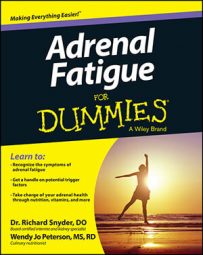Two conditions associated with adrenal fatigue include restless legs syndrome and osteoporosis. These two conditions may indicate the presence of adrenal fatigue in your life.
Let’s dance: the relationship between Restless legs syndrome and adrenal fatigue
Restless legs syndrome (RLS) is a condition in which you experience numbness and tingling in your legs and feel like your legs want to move all the time. The symptoms of RLS can occur especially at night when you want to go to sleep.
Moving the legs may help lessen the pain and pins-and-needles sensation in the legs. A patient once said RLS made his legs feel like they wanted to dance, even when he was sitting down.
RLS and adrenal fatigue are closely associated, likely because of hormonal imbalances that link these two conditions. Note that certain nutrient deficiencies have also been implicated in RLS. If you have RLS, your healthcare provider should test you for iron and other nutrient deficiencies, advanced kidney disease, and sleep apnea.
The treatment for RLS includes exercising and avoiding certain stimulants, such as caffeine. The doc may prescribe certain medications, including ropinirole (Requip), to help you manage the symptoms of RLS.
Bad to the bone: the relationship between Osteoporosis and adrenal fatigue
Osteoporosis (from the Greek, meaning “porous bones”) is a decrease in bone density. It commonly occurs in women in their late 40s or early 50s. Osteoporosis has been traditionally associated with postmenopausal women and older men with low testosterone levels. Certain medications and alcohol use can also increase the risk of developing osteoporosis.
That being said, adrenal fatigue is probably an underdiagnosed cause of osteoporosis. Over time, the excess cortisol produced by the adrenal glands can completely demineralize the bone. Decreased sex hormone production also contributes to the development of osteoporosis.
Don't ignore the role of inflammation in osteoporosis. There's a complex interplay between hormonal loss and increased inflammation. A study from Nutrition Reviews in 2007 looked at the connection between osteoporosis and inflammation.
In menopause, estrogen production decreases. Loss of estrogen was associated with the increased production of protein promoters of the inflammation process. These proteins are called pro-inflammatory cytokines, and over time, they can have a damaging effect on bone health.
Your healthcare provider diagnoses osteoporosis by looking for obvious risk factors. He or she can also order a dual-energy X-ray absorptiometry (DEXA) scan. This scan is scored using a T-score, which compares a patient's bone density to the peak bone density of a 30-year-old male or female, depending on the sex of the patient.
If you may have osteoporosis, your provider should do a thorough analysis, testing you for adrenal function (and its impairment) and thyroid function. You may need other testing for hormonal imbalances. Depending on the nature of the hormone imbalance, testing for a low testosterone level and simply replacing the testosterone may not be enough, especially in males.
Here are some things you can do to strengthen your bones:
Increase physical activity, especially muscle resistance training to increase muscle strength and endurance.
Stop tobacco and alcohol use.
Take a vitamin D supplement, which requires knowing your vitamin D level.
Increase your calcium and other trace minerals.
It's important to increase your calcium intake but maybe not with the type of supplements you've been taking. Studies show that certain types of calcium supplements may pose a risk to your heart. Increasing your intake of vegetables high in calcium is very helpful.

